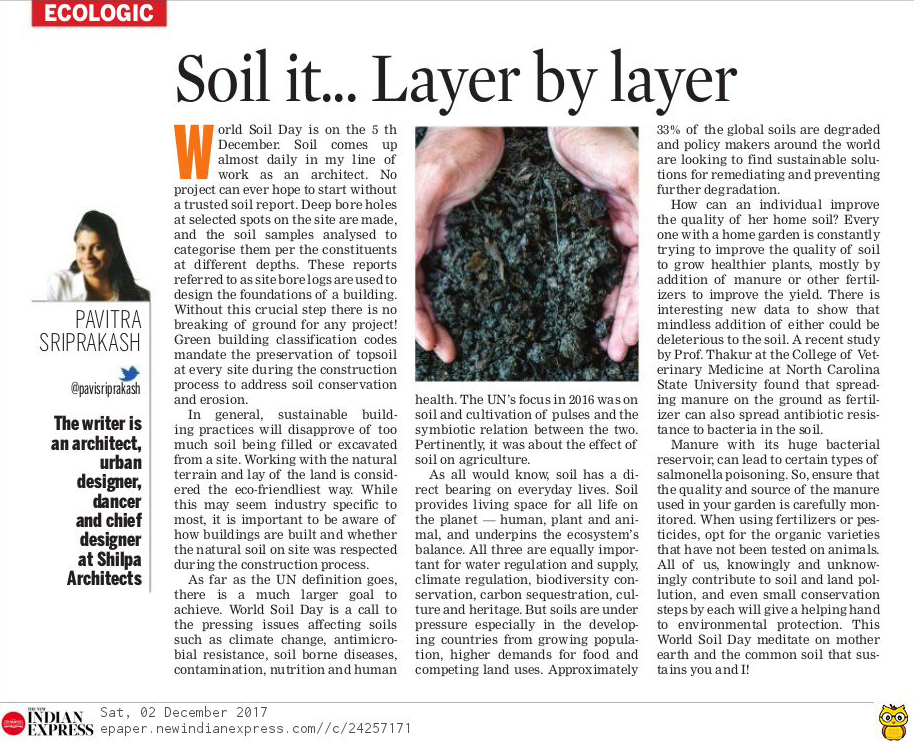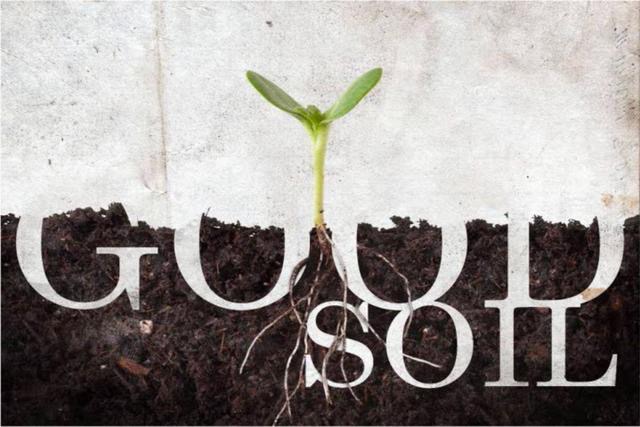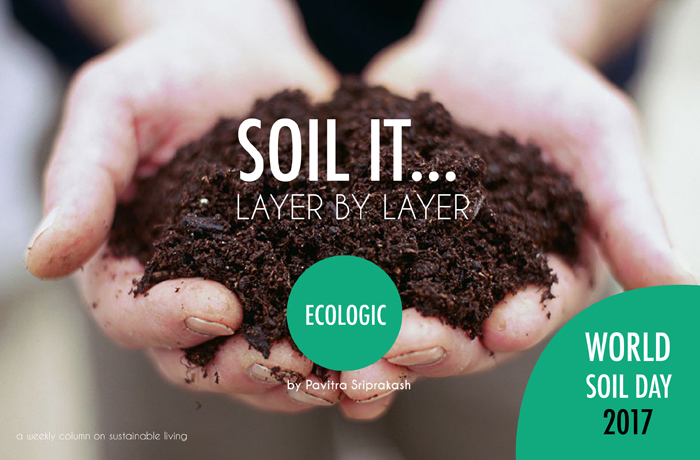This World Soil Day, Pavitra Sriprakash, the Chief Designer and Director of Shilpa Architects draws attention to the importance of nurturing soil to help sustain a good life. The Article below was featured in the New Indian Express on 2nd December, 2017

Full Article
World Soil Day is on the 5th December. Soil comes up almost daily in my line of work as an architect. No project can ever hope to start without a trusted soil report. Deep bore holes at selected spots on the site are made, and the soil samples analysed to categorise them per the constituents at different depths. These reports referred to as site bore logs are used to design the foundations of a building.
Without this crucial step there is no breaking of ground for any project! Green building classification codes mandate the preservation of topsoil at every site during the construction process to address soil conservation and erosion.
In general, sustainable building practices will disapprove of too much soil being filled or excavated from a site. Working with the natural terrain and lay of the land is considered the eco-friendliest way. While this may seem industry specific to most, it is important to be aware of how buildings are built and whether the natural soil on site was respected during the construction process.

As far as the UN definition goes, there is a much larger goal to achieve. World Soil Day is a call to the pressing issues affecting soils such as climate change, antimicrobial resistance, soil borne diseases, contamination, nutrition and human health. The UN’s focus in 2016 was on soil and cultivation of pulses and the symbiotic relation between the two.
Pertinently, it was about the effect of soil on agriculture. As all would know, soil has a direct bearing on everyday lives. Soil provides living space for all life on the planet — human, plant and animal, and underpins the ecosystem’s balance. All three are equally important for water regulation and supply, climate regulation, biodiversity conservation, carbon sequestration, culture and heritage.
But soils are under pressure especially in the developing countries from growing population, higher demands for food and competing land uses. Approximately 33% of the global soils are degraded and policy makers around the world are looking to find sustainable solutions for remediating and preventing further degradation.
How can an individual improve the quality of her home soil? Every one with a home garden is constantly trying to improve the quality of soil to grow healthier plants, mostly by addition of manure or other fertilizers to improve the yield. There is interesting new data to show that mindless addition of either could be deleterious to the soil. A recent study by Prof. Thakur at the College of Veterinary Medicine at North Carolina State University found that spreading manure on the ground as fertilizer can also spread antibiotic resistance to bacteria in the soil.
Manure with its huge bacterial reservoir, can lead to certain types of salmonella poisoning. So, ensure that the quality and source of the manure used in your garden is carefully monitored. When using fertilizers or pesticides, opt for the organic varieties that have not been tested on animals.
All of us, knowingly and unknowingly contribute to soil and land pollution, and even small conservation steps by each will give a helping hand to environmental protection. This World Soil Day meditate on mother earth and the common soil that sustains you and I!
About the author
 Pavitra Sriprakash (@pavisriprakash), the Director and Chief Designer of Shilpa Architects, is an Architectt, Urban Designer, Dancer and Artist. She writes a weekly sustainability column for The New Indian Express titled ECOLOGIC.
Pavitra Sriprakash (@pavisriprakash), the Director and Chief Designer of Shilpa Architects, is an Architectt, Urban Designer, Dancer and Artist. She writes a weekly sustainability column for The New Indian Express titled ECOLOGIC.


